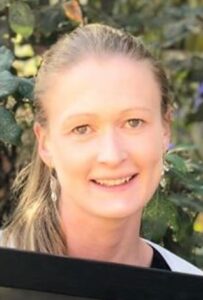Venture capital has grown out of Silicon Valley and become global by default, mirroring the industry that receives the majority of its attention: tech.
Fund managers in the U.S. and Europe still dominate the headlines, but quietly (and in fact increasingly noisily) other investors in emerging markets are honing their craft in contrasting circumstances.
Only about 1% of global venture capital is currently deployed in Africa, which raises an interesting question: How should an increasing number of tech founders on the continent go about raising capital in a low liquidity market?
Based on my 10 years of experience raising capital for my own startup and advising a portfolio of tech startups in East Africa, I aim to provide my view on how to best fundraise in tough market conditions.
Early-stage competition
 Marie Nielsen, partner at Antler East Africa
Marie Nielsen, partner at Antler East AfricaAs of 2024, there is more liquidity (specifically money closed by Africa-focused funds) in the continent’s venture capital space than ever before. In that context, I find recent fund deployment rates to be surprisingly slow at picking up following the capital downturn.
I see investors looking for the next generation of “novel” African tech solutions in favor of already “tried and tested” business models, and less willingness to “save” current struggling growth-stage companies. As a result, several mature companies in East Africa have recently had to wind down their operations, underscoring the urgent need for new success stories.
Unsurprisingly for an emerging VC market, competition is particularly pronounced in the earlier stages. Series A deals are hotly contested right now, while there is still a lack of pre-seed and seed funding due to lowered investor risk appetite.
Capital sources
At Antler, when I’m advising founders who go through our funding cohorts, I tell them to think about customer revenue as their cheapest source of capital. When there’s less money sloshing around, founders have to be focused on pursuing business models with strong unit economics and a relatively quick path to profitability. This embraces the fundamentals in good business practice in contrast to the hype-driven decision-making you might see in some U.S. tech hubs or even in Africa during the 2021-2022 capital boom.
Bootstrapping is another way of describing this approach to building companies — one that had somewhat of a renaissance in Europe and the U.S. during their VC funding drought. I always encourage Africa-based founders to embrace a stability-centric and long-term growth mindset first, allowing them to then think about experimentation when early revenue is coming in and there’s less runway risk attached. Alternative capital sources are also worth considering, such as grants.
Building trust
East Africa is a lower-trust environment, and the execution of deals can be harder than in other markets. If you’re a new founder, seek out a warm introduction to an investor from another founder who’s more experienced than you.
Investor circles in lower liquidity markets tend to be smaller, so face-to-face meetings can make all the difference when pitching. In my experience investing in East Africa, seed funding rounds often take a long time to close, even six to nine months. These timeframes require workarounds so founders don’t end up stranded.
An example is the use of Simple Agreements for Future Equity, or SAFEs, enabling founders to close and receive smaller checks “one by one” as investors commit.
Another hack is to invite an international investor to join your round; sometimes they set a more ambitious pace that local investors then follow.
And if you have a startup adviser, why not see if they become your first angel investor if they’ve bought into your vision?
In 2021, a BCG analysis of the African VC scene concluded that most deals struggled to progress beyond the second stage (note that this is from the year fondly looked back upon by people in Europe and North America as a golden era for cheap money in tech).
This context demands discipline and resilience from African founders, which will help them demonstrate to investors the viability of their companies in the long term. Much of the conventional wisdom on fundraising applies mainly to more mature markets. In this era — and especially on this continent — it’s crucial to understand your market context clearly and adapt quickly. This approach helps ensure your startup not only survives but also thrives in the face of low liquidity realities.
Marie Nielsen is a partner at Antler East Africa. Before Antler, she founded and managed Penda Paper Recycling in Addis Ababa and was a junior partner at McKinsey & Co. in Oslo and Addis Ababa.
Illustration: Dom Guzman

Stay up to date with recent funding rounds, acquisitions, and more with the Crunchbase Daily.
 2 months ago
39
2 months ago
39